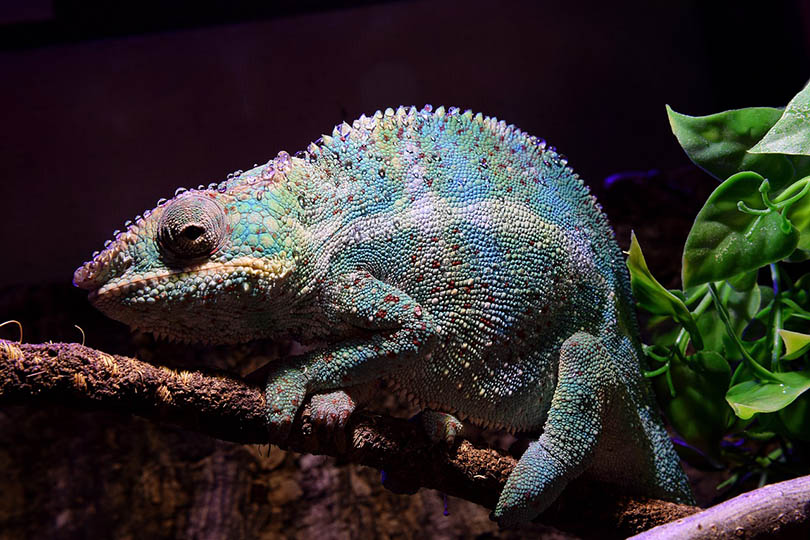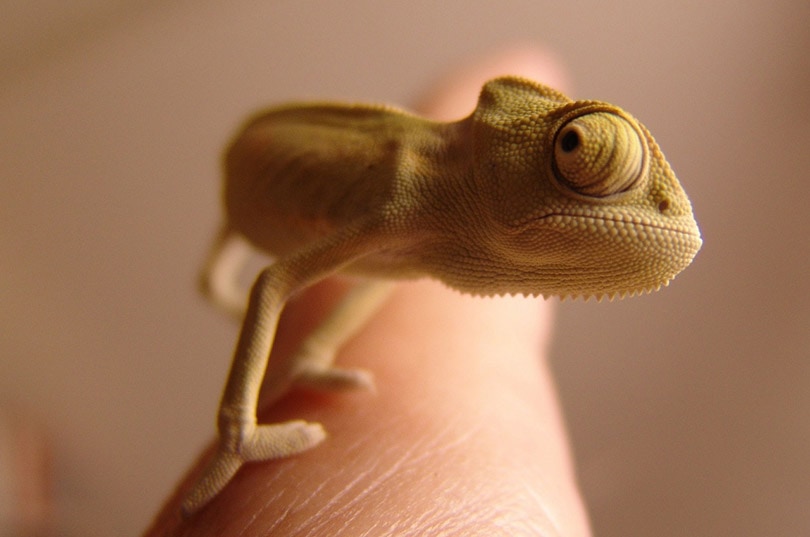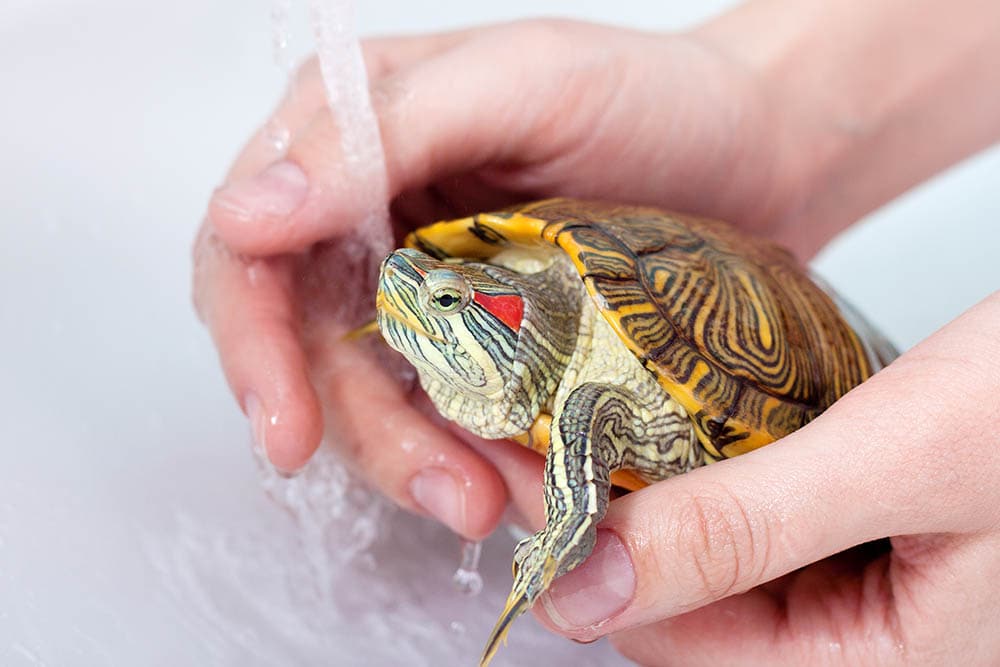
Breeding reptiles require incredibly high levels of expertise, patience, and knowledge. Reptiles are much different from mammals, needing particular environments and dietary care. Reptiles in captivity are susceptible to illness and other health issues when they aren’t cared for properly.
So, how do you know where to find a reputable breeder with the animal’s best interest at heart? It might take some digging and additional research at options—and you might even have to travel or consider shipping. Let’s take a look at what not to do, what to look for, and what you can ask.
Buying Reptiles from Pet Stores

Many reptile enthusiasts advise against buying reptiles from pet stores. Many of these animals have undergone a very stressful experience before arriving at the store.
Many employees lack the general knowledge to take care of these species, too. They don’t have the keen eye to notice when something is wrong with their health or if they are acting as expected.
Sometimes you can get lucky and find a perfectly healthy reptile with no issues, but is it worth the risk? Only you can decide.
Buying Reptiles from Previous Owners
Trading and selling are super common among reptile enthusiasts. It isn’t uncommon to see ads on social media platforms or buy/sell/trade sites where people want to swap reptiles. Hobbyists often do this for many purposes, and it doesn’t necessarily mean anything is wrong with the reptile.
However, sometimes people can use this as a way to swindle you—and that’s just the cold, hard truth. If their reptile has fallen ill, has an eating issue, or otherwise is experiencing a problem, rather than addressing it, many people look to get rid of them to turn a quick profit.
How to Find a Reputable Reptile Breeder
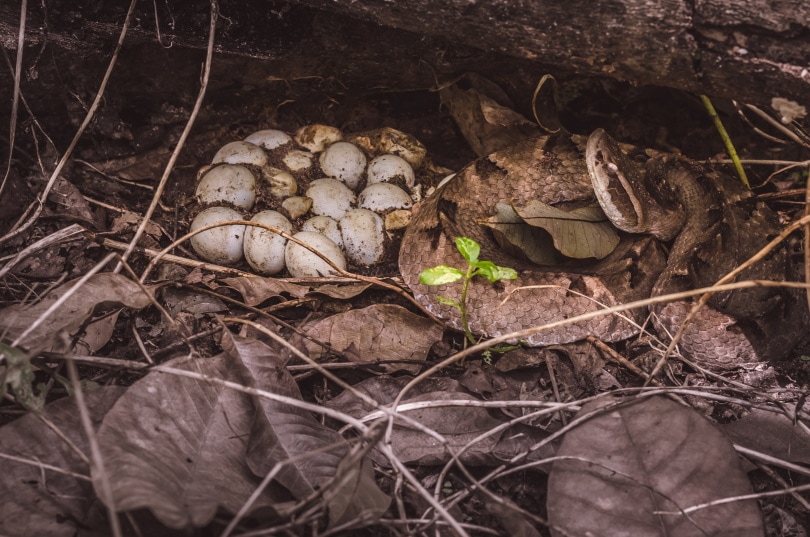
Instead of buying from any other place, searching reputable breeders can land you a quality, healthy reptile you can have for years to come. So, where can you find credible breeders?
Online Sites
There are places where reptile breeders who produce stunning specimens advertise. Sites like Morph Market and Reptile Super Show let you view tons of options, browsing through alphabetically.
Reptile Foundations
You can find extremely valuable information regarding breeders and much-needed alerts on authentic reptile websites. Sometimes, there are expos to attend across the United States where breeders bring their finest specimens for viewing and purchase.
Otherwise, you can use the sites to pick up valuable information about reptiles and how to buy or trade them.
Finding an Exotic Veterinarian Near You
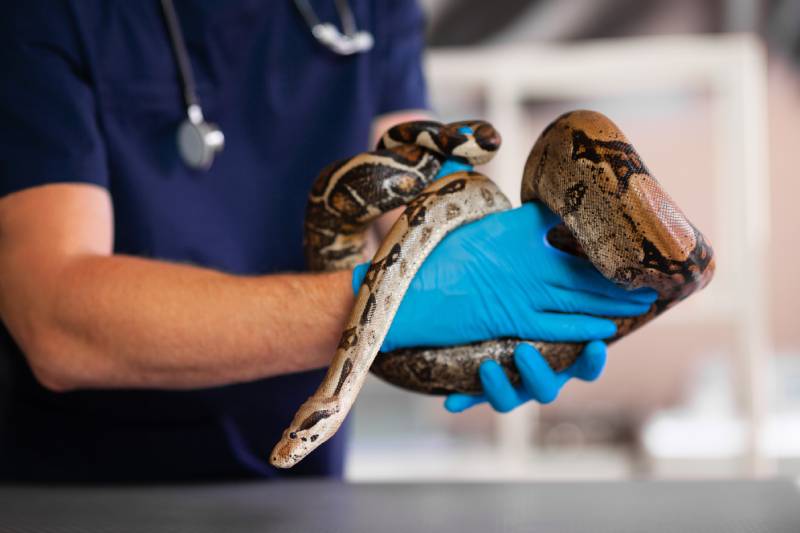
Before you even commit to getting a reptile, locating a vet needs to be your first move. Depending on where you live, it can be challenging to find a vet that takes reptiles. Also, exotic veterinarians might be more expensive than a traditional vet, so expect an increase in prices.
The 16 Questions Should You Ask a Reptile Breeder
Before you start your search for your reptile of choice, you should compile a list of applicable questions for your specific species. However, here’s a solid list of 15 you can consider when you finally reach out.
1. How Long Have You Been Breeding Reptiles?
Knowing how long your breeder has been in business can tell you a lot about their experience level. That is not to say that a new breeder can’t produce quality reptiles. It simply gives you peace of mind to know that they know what they’re doing.
Advanced breeders will only grow in their skillset. However, that doesn’t mean a novice breeder can’t produce quality reptiles. Use your best judgment.
2. What Reptiles Do You Specialize In?
The term ‘reptile‘ covers a broad range of animals. Sometimes variety isn’t necessarily a good thing when you’re picking a breeder. If someone breeds too many species, they might lack in other areas of specialization.
However, someone who only breeds one specific kind of reptile might not have what you’re looking for either.
3. Do You Have Any Professional Training or Skills?
Some breeders have very specific training or a long history of professional work with the animals they breed. Many breeders attend expos and seminars to become more knowledgeable about the topic. Also, they might move on to more challenging species.
Asking about their expertise gives you a good indication of how seriously they take the task—and you might just learn a thing or two in the process.
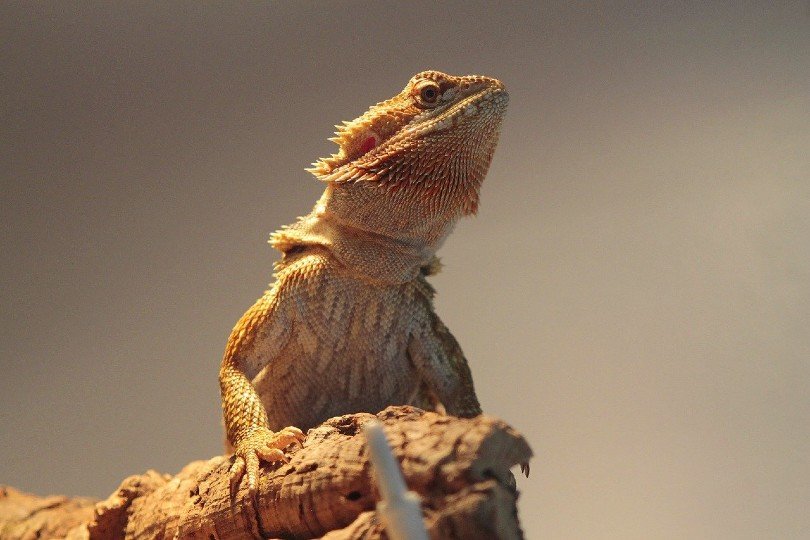
4. Can I See Pictures of Living Conditions?
Ultimately, the environment the reptiles live in speaks volumes about their overall care. If you notice that the conditions are less than favorable, you can steer clear.
Enclosures should have all essential elements to keep the reptile healthy and nourished.
5. How Do You Select Homes for Your Reptiles?
Some breeders have waiting lists a mile long—especially if they have a very rare species or morph. If you want a highly specific animal, it might be harder to find breeders who have them. Others have high availability for common species.
If a breeder does have limited availability, make sure to ask when you can expect the reptile of your choice and how they select buyers.
6. Would You Recommend This Species to a Novice Owner?
Some reptiles can be absolutely challenging to keep, especially when you’re not used to the animal’s unique needs. If you are interested in a particular species but don’t have the experience, ask the breeder about the potential expertise needed to handle the task.
A person who is genuinely interested in the wellbeing of the creature will gladly tell you if novice owners are a good fit. Sometimes, it’s as simple as knowing what kind of heating sources to use and when. Other times, it can be something much more specific, like a rigorous diet regimen.
Certain reptiles can become very ill without the right dietary and environmental needs, which can be tremendously expensive and time-consuming. Breeders should be interested in the reptile’s overall livelihood over profit.
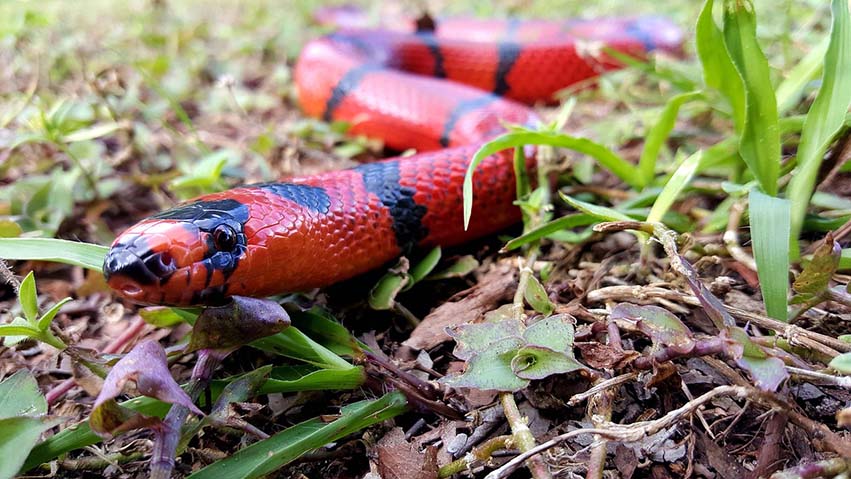
7. Do You Think I’m a Good Candidate to Own this Species?
It doesn’t hurt to ask what impression someone gets from you. Before handing over their hard work, many breeders will question potential buyers about their experience levels, living situations, and budget. No breeder wants to think they gave away a defenseless reptile to someone who can’t handle it.
If you aren’t a good candidate for one reptile species, it doesn’t mean you are for all. Some can just come with a specific set of instructions you might not be able to adhere to. If you feel up to it, ask what suggestions a breeder would make about a potentially more fitting species for you.
8. Can You Tell Me More About The Reptile I’m Interested In?
Breeders should be pouring over with knowledge about the species. After all, they have to get to know them very well—caring for them during their bearing years and making sure they are healthy enough to sprout offspring.
A breeder should have a genuine love for the species they care for. If you are interested in real information from a knowledgeable professional, ask away. The breeder should be happy to answer all questions you have about the species to ensure optimal care in the future.
9. What Supplies Will I Need to Get Started?
Reptile supplies can be downright expensive—especially if you’re just starting out. Certain reptiles can carry hefty bills when it comes to keeping the proper temperatures and humidity inside of the enclosure.
Other reptiles can get positively enormous as adults. Ask the breeder how big the enclosure will need to be once a reptile is fully grown. Equipment can get pricey, and space can be hard to accommodate. Always plan ahead, realizing most reptiles take a very long time to fully mature.
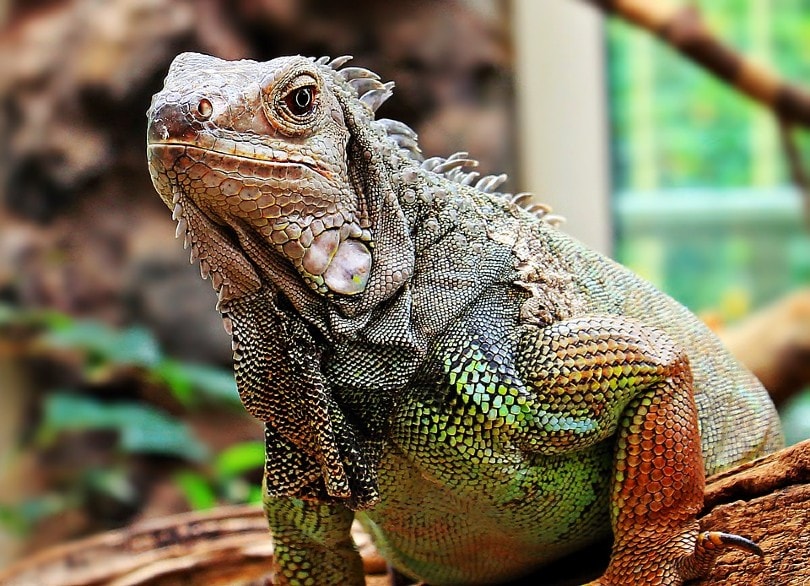
10. Have You Dealt With Any Recent Illnesses or Outbreaks?
The last thing you will want to do is bring home a sick reptile. If you have other reptiles, the issue could spread like wildfire before you even know anyone is ill. If you have no other reptiles, it could still cause big vet bills and other costly expenses to get them better.
On a more depressing note, your reptile could die if you don’t catch the problem in time. It’s always best to know your risks before you pay for an unhealthy animal.
11. How Often Should I Get My Pet Out of the Enclosure?
Some reptiles can come out to play, while others prefer to stay tucked out of sight. If handling your reptile strikes your interest, you need to get a compatible species for that lifestyle.
For instance, bearded dragons and some geckos tend to be curious and interactive with owners—very much enjoying their time out to play. Others, like a chameleon, are very sensitive to outside stimuli and can become very stressed or ill if you handle them too much.
12. Is There Any Special Information I Need to Deliver the Best Care?
You want to make sure you’re the best reptile owner possible. To do that, gather all the information you can about the species—and then go above and beyond to provide optimal care.
Different species can pose certain challenges that make care a bit difficult, especially for novice owners. It’s best to know exactly what kind of care the species needs so that you can keep them completely healthy and issue-free.

13. Do You Offer Health Guarantees?
Many reptiles are very expensive. Not only are they expensive to buy—they also might require a hefty bill for supplies. It’s an excellent idea to buy from a breeder that offers health guarantees. This does depend on the breeder you select, as some do not offer it.
Also, most breeders offer live arrival guarantees if you’re receiving a shipment, promising that the reptile will arrive safely with no issues.
14. Do You Require a Deposit?
Before you actually pick up your reptile, you might have to put a deposit down to ensure you get what you want. Due to waiting lists we discussed previously in the article, you might have to put a deposit down to ensure you get one of the reptiles you desire.
Some breeders require outright purchase with no deposit required.
15. Will You Take the Reptile Back If I Am Ever Unable to Care for It?
Some breeders will take back the specimens if you need to rehome, while others will not. It’s important to know—especially if you fear unexpected changes in the future. If not, you can plan to find someone to care for your reptile in the event you’re ever unable.
You will be responsible for rehoming the reptile yourself most of the time—unless you have a very rare specimen.
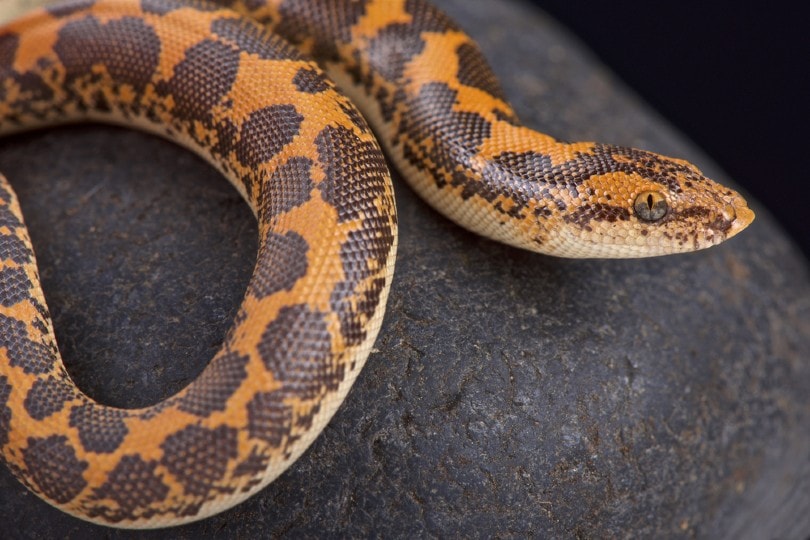
16. Do You Have a Degree?
Even though reptile breeders don’t need to have a formal degree, it’s still a plus when you look for breeders. Husbandry and care can come from experience alone, but having in-depth knowledge can be a real bonus for potential buyers.
After all, who doesn’t want to buy from a professional with incredible knowledge about the reptiles they sell? It ensures that the animal is taken care of in an efficient way.
Final Thoughts
Finding a responsible breeder can be difficult, but it’s often worth it to receive quality reptiles. If you’re putting your money toward a pet, you want to make sure it’s worth your investment. Owning reptiles isn’t a cheap hobby after all.
When you find the breeder with the reptile species you seek, don’t be afraid to ask as many questions as you can to know it’s worth it. Read reviews, look up their credentials, and do your research.
- You may also want to read: 9 Best Online Reptiles Stores (& What You Need to Know)
Featured Image Credit: reptiles4all, Shutterstock


